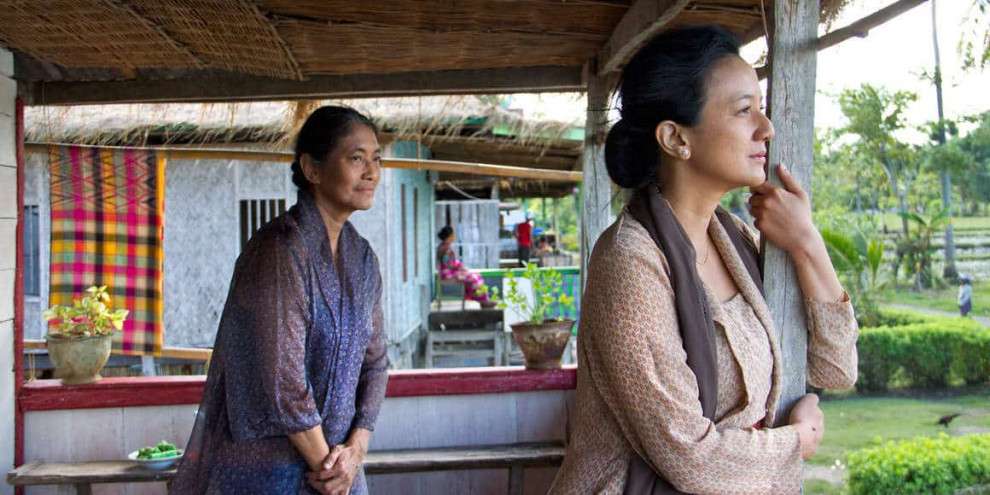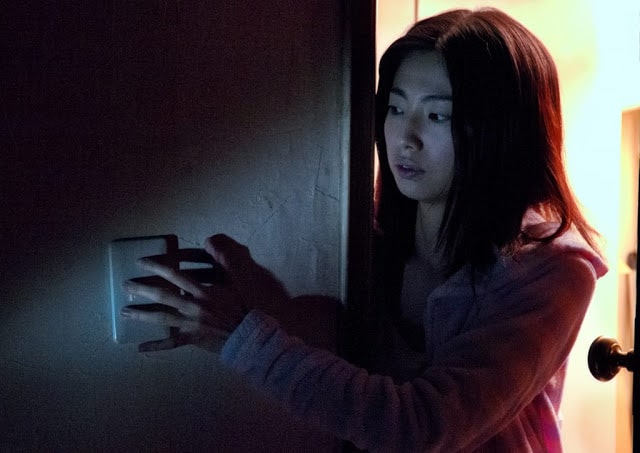The script is based on Alberthiene Endah's novel “Athirah” and takes place in south Celebes, in a society ruled by men. In this place, Puang Aj has set up a thriving trading company that flourishes along with his family. However, when his wife, Athira, gets pregnant, he starts missing more and more from the house, supposedly on business. It is soon revealed that he is about to take a second wife in Jakarta, since polygamy was common in Indonesia for Muslims, from the 1930s to '70s. This action has tremendous impact on his family, and particularly his wife, who, despite being a child of a fourth wife herself, is devastated. The impact is equal on his eldest son, Ucu, who does not know how to deal with his frustration and resorts to violence. However, both of them manage to overcome their shock, Athira with the help of her mother and by creating thriving company dealing in sarongs, and Ucu by discovering love. Alas, their troubles from the implications Punag Aj's marriage has created are much more than they thought.
“Emma” screened at the Vesoul International Film Festival of Asian cinema
Riri Riza makes an obvious and quite harsh comment on the institution of polygamy, which, as the movie progresses, is presented as something that can only bring misery and sadness, particularly in the case of the previous families. The fact that Puang Aj indulges in another woman while his wife is pregnant makes this comment even harsher. In this frame, Riza also entails a coming-of-age story, through Ucu, who has to deal with his father behaviour at the same time that he deals with puberty. The fact that Puang Aj's behaviour seems to haunt him even when he tries to approach his love interest, makes him even more frustrated, as he also tries to understand why his mother is tolerating all these. In his character, Riza symbolizes the younger generations, who consider polygamy inappropriate.
The film also highlights the beauties of the area, its traditions, with a focus on the culinary and the music. In that fashion, Yadi Sugandi's cinematography is quite impressive, as it realistically depicts the era, both indoors, in the family's house, and outdoors, where the appeal of the place becomes evident, through a number of gorgeous shots. Additionally, most of the film is bathed in light, where the white color seems to dominate, in a tactic that produces an optimistic feeling, despite the events that occur.
There is not much dialogue in the film, but the characters' silences are more than meaningful, and the splendid framing adds to this sense even more. Cut Mini as Athirah implements this tactic perfectly, as her feelings and thoughts are conveyed through her eyes, occasional bitter smile, and her body stance. A great example of her prowess are the scenes where she watches her husband leaving, dressed in his best clothes, supposedly for work. She knows that something is going on, and despite the fact that she does not say anything, her feelings and thoughts are quite evident in her face. Christoffer Nelwan is also quite good in this fashion, as Ucu, with his character additionally providing the few comic sequences in the film. The scene where the girl he loves explains her actions, is his highlight.
Despite the evident art-house aesthetics of the movie, music plays quite an important role, and Juang Manyala has done a splendid job on the score, with a number of scenes filled with music, that provide a nice break from the “heavy” atmosphere of the story, thus making the film more entertaining.
W. Ichwandiardono occasionally uses some very impressive sharp cuts, that quicken the pace of a relatively slow film, which is void though, of almost everything redundant, in its 95 minutes.
“Emma” is a great and very meaningful film, that manages to combine elaborately art-house aesthetics and entertainment.

















